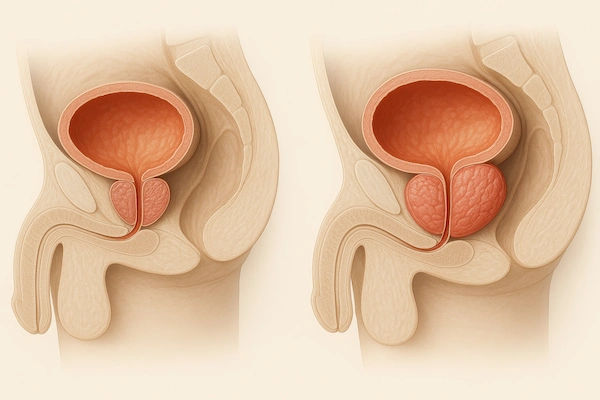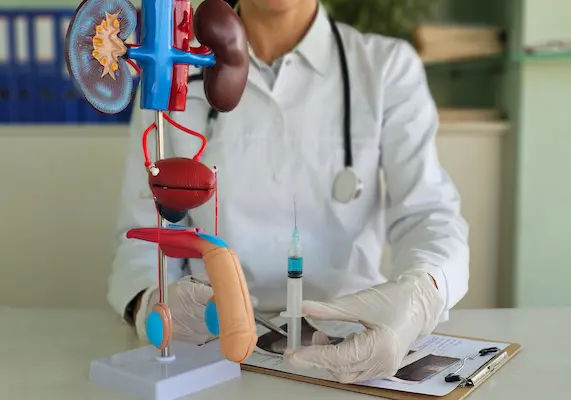- female
- 30 Years
- 22/02/2023
How do doctors test for UTIs?
Answered by 1 Apollo Doctors
Basic investigations include Urine routine and urine culture or sometimes your doctor may also suggest imaging of your urinary tract.
Dr. Anshul Suggests...
Consult a Urologist
Answered 04/07/2025
0
0


Ask Apollo
AI powered Health Chatbot
-
Urine Sample Collection
a. A clean-catch midstream urine sample is collected to avoid contamination. -
Urinalysis
a. A dipstick test checks for signs of infection like white blood cells, nitrites, and blood in the urine. -
Microscopic Examination
a. Urine is examined under a microscope to identify bacteria, white blood cells, or other abnormalities. -
Urine Culture
a. Bacteria from the urine sample are grown in a lab to identify the specific bacteria causing the infection and determine the best antibiotic treatment. -
Additional Tests (if needed)
a. Imaging tests or cystoscopy might be recommended for recurrent or complicated UTIs. -
Role of Medical Specialties
a. Urologists or nephrologists may be involved in complex cases.
Recommended next steps
Consult a Urologist or Take a Urine Culture Test Test
Answered 20/08/2025
0
0
More Urology Health Queries
View allI was diagnosed with a 5 mm stone in my urinary bladder about a week ago, and my doctor told me to take veltam 0.4. The stone passed the very next day, and now, five days later, the ultrasound showed no signs of any abnormality or stone. I can't seem to reach my doctor at the moment, so I'm wondering if it's okay for me to stop taking the medicine now. What do you think?
As the size of the stone is large thats the appropriate procedure,follow your doctors advice
Answered by 1 Apollo Doctors
I've been having this issue where every time I shake my penis, it gets this bulge on it. It's really odd because after about 8 hours, it seems to go back to its normal shape. This has been worrying me, and I'm not sure what to do. Can you help me figure out what's going on?
The bulge on your penis after shaking it, which resolves on its own within 8 hours, might be due to a condition called Peyronie's disease or trauma-induced swelling; apply ice packs, avoid vigorous shaking, and consult a urologist for proper evaluation and guidance to prevent potential long-term damag
Answered by 1 Apollo Doctors
How can you tell the difference between congenital phimosis and adult-onset phimosis? Also, does having phimosis mean someone is impotent? And is there a way to treat congenital phimosis without needing surgery, maybe using something like betamethasone cream?
Congenital phimosis is present from birth, where the foreskin cannot be retracted due to a tight opening, while phimosis in adults often develops due to scarring or infection. Phimosis is not considered impotence, as it primarily affects the foreskin's ability to retract, not erectile function. Betamethasone cream can be effective in mild cases of congenital phimosis by reducing inflammation and allowing easier retraction, but surgery may still be required for more severe cases.
Answered by 1 Apollo Doctors
Disclaimer: Answers on Apollo 247 are not intended to replace your doctor advice. Always seek help of a professional doctor in case of an medical emergency or ailment.





